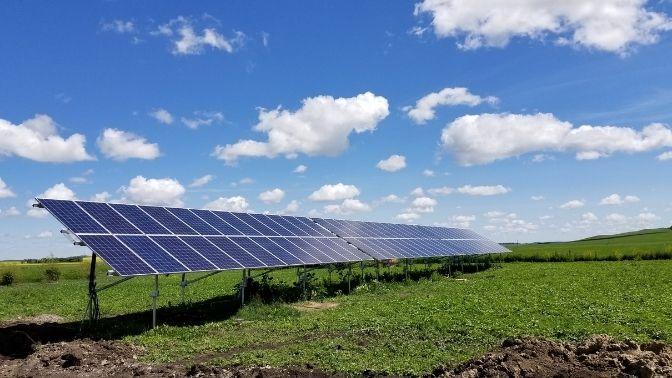The idea of producing your own electricity is undeniably appealing; finally, you won’t need to pay monthly bills for your energy usage! But after you set up a solar system, you might find that it’s more beneficial to stay connected to the grid.
When you’re setting up a solar system, you need to decide whether you want to tie your setup to the grid or generate electricity independently from it.
There are a few factors to consider when making your decision. We’re going to explain the differences between these two types of solar systems:
Off-Grid Solar Systems
If you’re interested in total self-sufficiency, an off-grid solar system will certainly appeal. With this setup, you’ll rely entirely on your solar panels to fulfil your energy needs. You won’t pay a dime to utility companies to power your home, business, or industrial property.
When setting up an off-grid system, it’s particularly important to calculate your energy needs precisely. You must ensure that your PV panels can generate enough power for your lifestyle because you can’t draw from the grid when you’re running low. Any excess energy you generate will feed into your battery—since you aren’t connected to the grid, you have no way of selling it back to utility companies.
It’s imperative to connect a battery for backup energy storage when you’re running an off-grid system. Without it, you won’t have any power to use at night time. Setting up a battery system can be expensive, but a backup system allows you to store power when you need it. Use a charge controller to protect the battery from overcharging.
On-Grid Solar Systems
Also known as grid-tied or grid-interactive setups, on-grid solar systems let you generate your own electricity while drawing from power lines when needed.
If there are several cloudy days in a row, you might run out of power when you need it most. On-grid systems let you draw power from Manitoba Hydro when you’re in short supply of it. You won’t have to worry about power shortages on shady days.
Even if you have an on-grid system, you may still choose to have a battery installed. This comes in handy during extreme weather events that damage power lines or other outages. When power lines are being repaired, on-grid solar systems will be disconnected to prevent any safety hazards for the workers. But with a battery, you will still have a reserve of electricity to draw from.
In Manitoba, there is a net billing program. You can sell back excess power to Manitoba Hydro for a set price. However, this is not a particularly profitable system; it helps cover the cost of the power you use from Manitoba Hydro, but nothing more. It’s best to install solar panels that are properly sized for your property so that your energy output can meet your needs.
Whether you choose to go with an off-grid or on-grid system, solar can help you minimize your carbon footprint and lower the cost of your utility bills.
Are you still unsure about which setup is right for your solar panels in Winnipeg? Feel free to contact Powertec Solar to ask any questions you might have. We can provide a free solar energy feasibility analysis for your property. Get in touch with us today to learn more.

